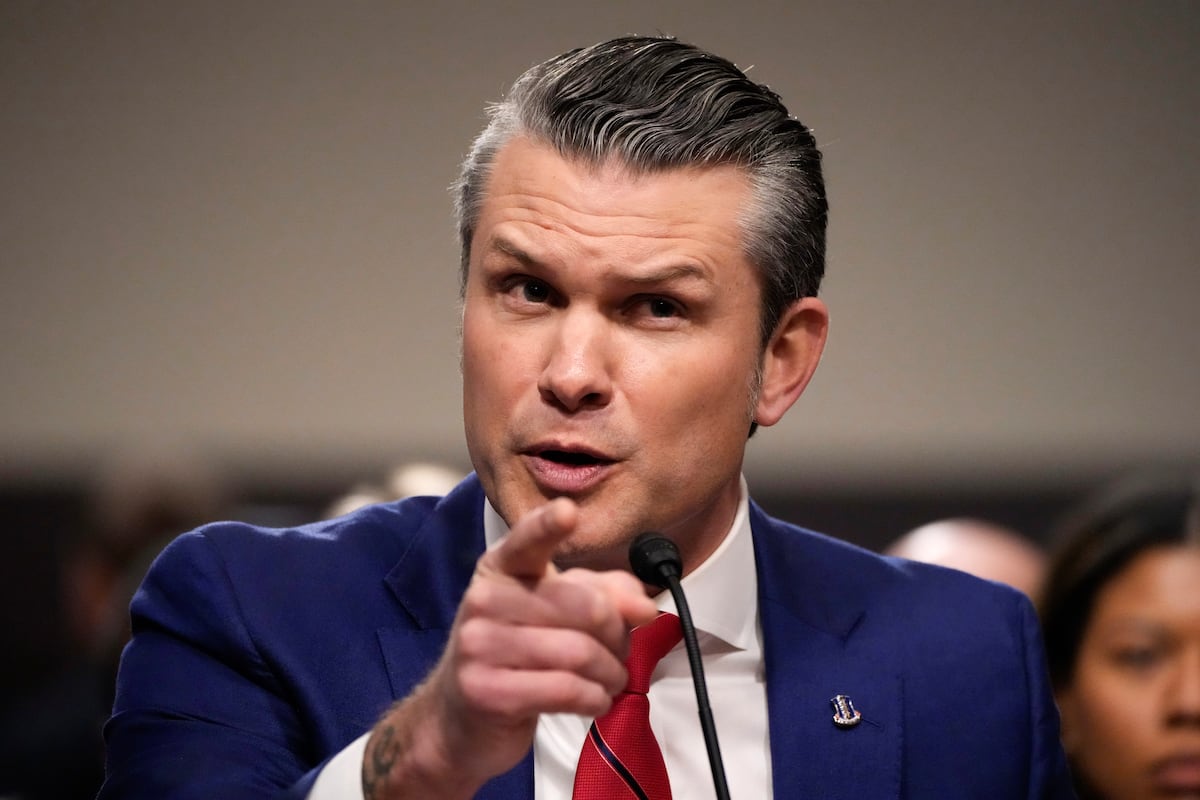When duty called, both of us considered it an honor to answer. In different wars, under different commanders in chief and secretaries of defense, each of us packed our bags, laced up our boots and deployed to the Middle East — flying combat missions over Iraq because we believed in our country and, crucially, because we believed in the military and civilian leaders who asked us to sacrifice.
At any point in time, many of the 1.3 million active-duty U.S. service members stationed across the world are taking enormous risks in service to our nation. They may be flying a training mission over Texas. They may be flying a combat mission against ISIS. They may be standing watch on the border with North Korea. For each of them, there is a spouse, a kid, parents, brothers and sisters who pray for their safety.
Everyone who has worn the flag on their uniform knows the risks and sacrifices made by our troops and their loved ones. It’s a system that depends on discipline, training and trust. Trust in the people beside you in the cockpit. Trust in your commanding officer. And trust all the way up the organizational chart, including in the secretary of defense.
The defense secretary is one of the biggest jobs in the world: an indispensable civilian check at the top of our military apparatus. This week, the Senate Armed Services Committee on which we serve will hold a confirmation hearing for President-elect Donald Trump’s nominee to fill the position, Pete Hegseth.
Our responsibility is to make sure that the person who gets this job has the experience and judgment required to walk into a room of anyone from cadets to foreign military leaders and earn their respect and trust. It has to be someone who can manage the bureaucracy — not have it manage them. It must be someone who not only has real ideas about how to use our resources to best counter threats we face around the world, but who can also work quickly and effectively to put those ideas into practice. It must be someone capable of managing any kind of budget, let alone one of more than $800 billion; who can plan and execute the kind of complex multidomain missions that keep our country safe; and who has proven themselves both able and worthy of leading our service members who ask for so little in exchange for risking so much.
From everything we know, it’s extremely unclear if Mr. Hegseth is that person.
One quick glance at his resume and concerns over his lack of experience and qualifications become obvious.
Mr. Hegseth likes to talk about how the U.S. military is the ultimate meritocracy. We agree. So let’s talk about his merits for this job: While we respect his service in the Army Reserve and National Guard, he did not rise to a command position where he would learn the management, joint forces operations, logistics and other skills relevant to the role he’s up for now. He never commanded a task force or a detachment — nothing near the scale or scope of the 3 million people who make up the DOD.
These military experiences aren’t requirements for the job, but his civilian leadership experience is not just limited, it is also fraught with evidence that he is not an effective or trusted leader. He financially mismanaged two veterans political organizations, with his staff alleging that he misused funds, was frequently drunk in front of them and fostered an environment where sexual harassment was an issue. He spent the last seven years as a Fox News host, where his alcohol consumption was also a concern among his co-workers. We would not tolerate this kind of reckless behavior from recruits — there is absolutely zero reason we should tolerate it from the man who is supposed to be their leader.
Mr. Hegseth will have the chance to answer for all of this at his confirmation hearing, along with the opportunity to share what, if any, views he has on the critical programs and decisions that will be awaiting the next person to have this job. As of right now, the only defense policies he has made clear are his beliefs that our military’s diversity is a weakness, not a strength, and that women should not serve in combat. These positions aren’t just wrong, they’re dangerous, and they leave us doubting whether Mr. Hegseth understands what makes our military the most lethal fighting force in the world. It would simply not be possible to go to war without the 225,000 female service members in our ranks. And frankly, Mr. Hegseth, these women have proven themselves capable of handling the jobs they’ve earned, while you still have much work to do.
The reality is that the world is too dangerous of a place, and our service members’ lives too precious, to lower the bar. Those in uniform today deserve a strategic, experienced, well-qualified leader who they know will have their backs — and who has what it takes to prepare and equip them to win whatever fight they face.
This week, Mr. Hegseth has an opportunity to show us and the American people if he meets that basic standard.
Sen. Mark Kelly, D-Ariz., is a retired U.S. Navy captain who served in Operation Desert Storm. Sen. Tammy Duckworth, D-Ill., is a retired U.S. Army National Guard lieutenant colonel who served in Operation Iraqi Freedom.
Read the full article here







